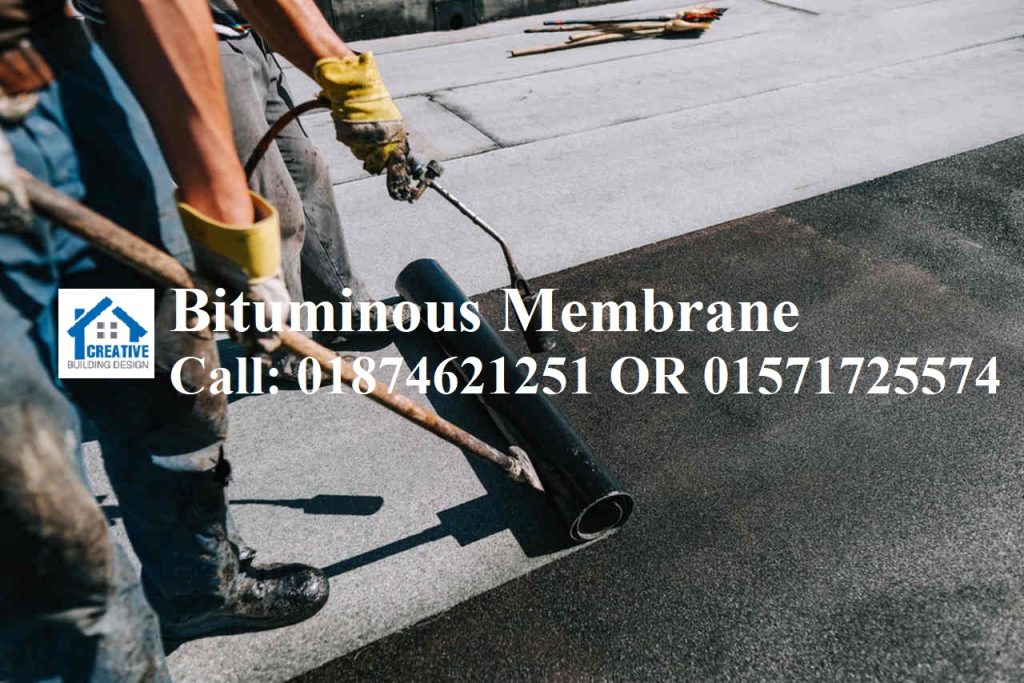
Bituminous membrane in Bangladesh is a waterproofing and roofing materials. Bitumen is a black or dark brown material that is a naturally-occurring component of petroleum, coal, and asphalt. It is water-repellent, durable, flexible, and adhesive.
The bituminous membrane is manufactured using bitumen, reinforcing materials, protective coatings, and surfacing. Bitumen is applied to reinforcing materials using a variety of processes. The reinforcing materials used include glass fiber, polyester, aluminum foil, and polypropylene.
Bituminous membrane is used on a variety of structures including roofs, walls, foundations, and basements. It is also used to line reservoirs, lakes, and canals. The bituminous membrane is available in a variety of thicknesses and widths. It is also available in a variety of colors including black, green, blue, brown, and grey.
Contents [hide]
- 1 Techniques of Bituminous Membrane Layer Waterproofing:
- 2 Qualities that you find in our Bituminous Membrane service in Bangladesh:
- 3 Benefits of using Creative Bituminous Membrane in Bangladesh:
- 4 What is polymer bitumen membrane?
- 5 Which bitumen is best?
- 6 Which is the most commonly used bitumen?
- 7 What is polymer-modified bitumen explain?
- 8 What are the different grades of bitumen?
- 9 Final words:
Techniques of Bituminous Membrane Layer Waterproofing:
Bituminous membrane waterproofing is a general term for various types of membrane materials that are used for waterproofing and damp-proofing. The main types of bituminous membrane waterproofing are self-adhesive membrane, cold applied asphalt, hot applied asphalt and torch applied membrane.
A self-adhesive membrane is a type of bituminous membrane that is coated with a self-adhesive layer on one side. This layer is designed to bond the membrane to the substrate. The self-adhesive layer is usually activated by heat or solvent. Cold applied asphalt is a type of bituminous membrane that is applied at low temperatures, typically below 50°F (10°C). Cold applied asphalt is available in both liquid and solid form.
Hot applied asphalt is a type of bituminous membrane that is applied at high temperatures, typically above 200°F (93°C). Hot applied asphalt is available in both liquid and solid form. Torch applied membrane is a type of bituminous membrane that is applied with a torch. Torch applied membrane is available in both liquid and solid form.
Qualities that you find in our Bituminous Membrane service in Bangladesh:
Bituminous membranes are flexible materials that are used to waterproof a variety of structures. They are made from a combination of asphalt and reinforcing materials, such as fiberglass or polyester. Bituminous membranes come in a variety of thicknesses and widths to suit the needs of the project.
Bituminous membranes are typically black in color and have smooth, glossy surfaces.
They are available in sheets or rolls and can be applied with a variety of methods, including torch-on, self-adhesive, or cold-applied. Bituminous membranes are durable and resistant to UV light, chemicals, and abrasion. They can be used on a variety of substrates, including concrete, metal, and wood.
Bituminous membranes are typically used to waterproof roofs, decks, and other horizontal surfaces. They can also be used to seal Vertical surfaces, such as walls and foundations. Bituminous membranes are available in a variety of grades, depending on the intended use. Grade I membranes are typically used for general waterproofing, while Grade II and III membranes are designed for more demanding applications, such as exposed decks and roofs.
Bituminous membranes are typically produced in two types modified bitumen and atactic polypropylene (APP). Modified bitumen membranes are made with a variety of asphalt formulations and reinforcement materials, while APP membranes are made with a single type of asphalt and no reinforcement materials. Bituminous membranes are typically installed by a professional contractor. Installation methods vary depending on the type of membrane and the substrate.
Benefits of using Creative Bituminous Membrane in Bangladesh:
The bituminous membrane is a type of waterproofing material that is often used on roofs. It is made of asphalt and is applied as a liquid or a sheet. It is then heat-sealed or cold-applied to the surface.
The bituminous membrane has several advantages over other types of waterproofing materials. It is very durable and can last for many years. It is also resistant to fire and chemicals. It is also easy to apply and can be applied to a variety of surfaces.
- Strong
- Great weldability
- Extremely durable
- Excellent resistance to water and other elements
- Highly resistant to punctures and tears
- Can be applied in a wide range of temperatures
- Can be recycled and reused
- Easy to install
What is polymer bitumen membrane?
Polymer bitumen membranes are a type of roofing material that is made from a combination of bitumen and polymer. This type of membrane is often used on flat or low-sloped roofs. It is also used on walls and ceilings in some cases. Polymer bitumen membranes are known for their durability and resistance to weathering.
Which bitumen is best?
There is no one “best” bitumen, as the type of bitumen that is most suitable for a given application depends on the specific conditions and requirements of that application. Some of the factors that need to be considered when choosing a bitumen include the climate, the type of surface to be paved, the traffic conditions, and the cost.
Which is the most commonly used bitumen?
The most commonly used bitumen is asphalt, which is a mixture of bitumen and aggregate (usually sand and gravel). Asphalt is widely used for paving roads and other surfaces because it is durable, weather-resistant, and relatively easy and inexpensive to produce.
What is polymer-modified bitumen explain?
Polymer-modified bitumen is a type of bitumen that has been enhanced with the addition of one or more polymers. The polymers used can be either natural or synthetic, and they serve to improve the properties of the bitumen in several ways. For example, they can increase the bitumen’s flexibility and resistance to weathering and wear. In addition, polymer-modified bitumens can be formulated to have a range of different physical and chemical properties, depending on the needs of the application.
What are the different grades of bitumen?
Bitumen is a sticky, black, and highly viscous liquid or semi-solid form of petroleum. It may be found in natural deposits or may be a refined product; it is a substance classed as a pitch. Before the twentieth century, the term asphaltum was also used. The word is derived from the Ancient Greek ἄσφαλτος (á-sphaltos, “secure, unyielding”).
The primary use (70%) of bitumen is in road construction, where it is used as a binder in asphalt concrete. Its other main uses are for bituminous waterproofing products, including the production of roofing felt and for sealing flat roofs. The terms “asphalt” and “bitumen” are often used interchangeably to mean both natural and manufactured forms of the substance. In American English, “asphalt” (or “asphalt cement”) refers to the more viscous form of bitumen, while “bitumen” refers to the less viscous form. In Commonwealth English, “bitumen” is used as the generic term for the material.
There are three grades of bitumen:
- Grade A bitumen is a standard bitumen grade used in road construction.
- Grade B bitumen is a medium grade bitumen.
- Grade C bitumen is a high grade bitumen.
Final words:
Bituminous membrane is a type of waterproofing material that is commonly used in Bangladesh. It is made from asphalt and is applied to the surface of buildings to prevent water ingress. The bituminous membrane is available in rolls or sheets and can be applied using a variety of methods including cold-applied, hot-applied, and torch-applied. Bituminous membrane is an effective waterproofing material that is widely used in Bangladesh. It is easy to apply, durable and provides good protection against water ingress.
Related Post:
- Best Waterproofing & Damp Proofing Company
- Waterproofing And Dampproofing Specialist In Bangladesh
- Acrylic Roof Coating Waterproofing
- Cementitious waterproofing in Bangladesh
- Concrete Waterproofing Company in Bangladesh
- Foundation Waterproofing Membrane In Bangladesh
- How To Make Concrete Roof Waterproof?
- How To Waterproof Basement Concrete Floor?
- How To Waterproof Concrete Wall?
- Is Concrete Paint Waterproof?
- Polyurea Spray Coating
- Polyurethane Waterproofing In Bangladesh
- Rooftop Waterproofing In Bangladesh
- Waterproofing Chemical in Bangladesh
- Best Waterproofing Applications for Your Flat Roof
- Waterproofing In Bangladesh
- Waterproofing Membrane In Bangladesh
